Your Next Favorite Social App alternatives to Snapchat Apps Like Snapchat in the ever-evolving world of social media, Snapchat has carved out a unique niche with its ephemeral content, playful filters, and innovative storytelling features. While Snapchat continues to be a go-to app for many, there are several other platforms that offer similar and sometimes even more advanced features. Whether you’re looking for a fresh social media experience or want to explore alternatives that bring something new to the table, this guide will introduce you to the best apps like Snapchat.
Your Next Favorite Social App Alternatives to Snapchat
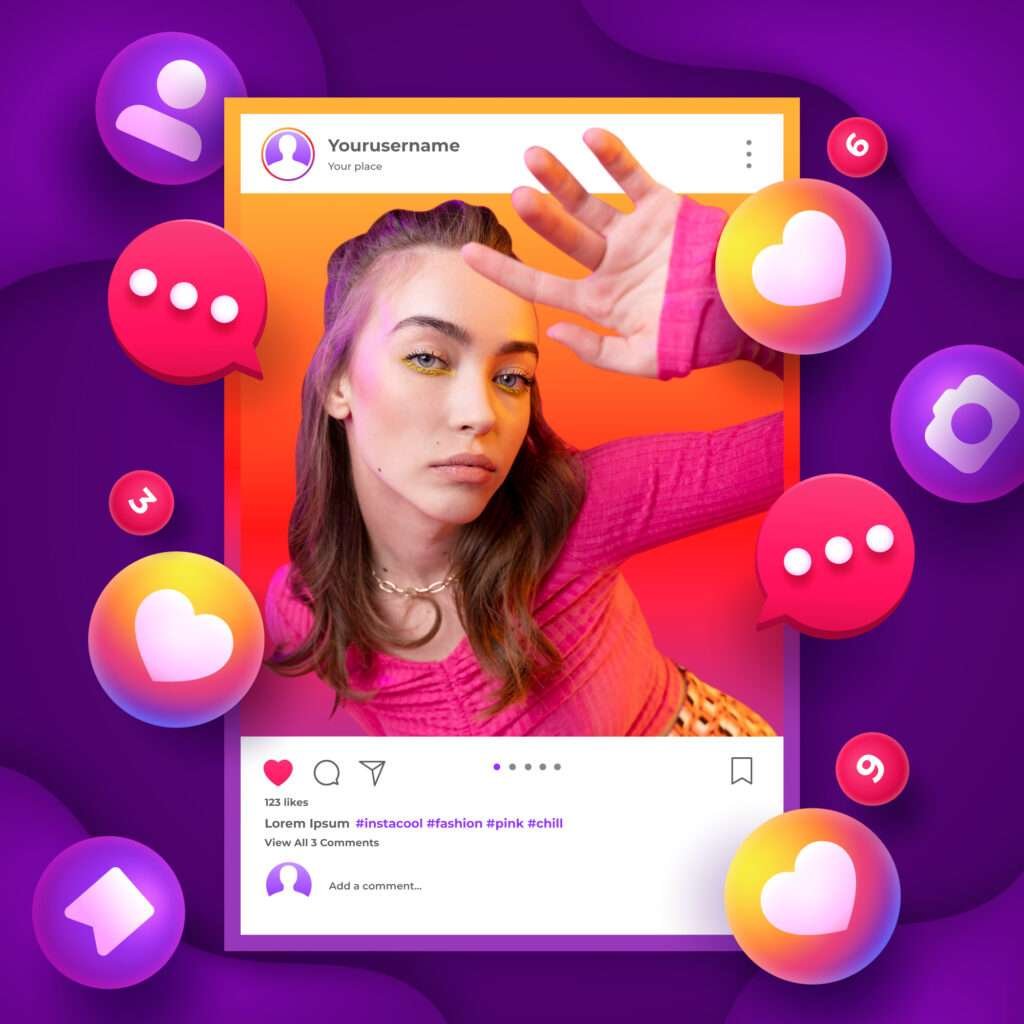
Why It’s Similar: Instagram started as a simple photo-sharing app but has evolved into a robust social media platform with features akin to Snapchat. Instagram Stories, which disappear after 24 hours, mimic Snapchat’s core feature. Additionally, Instagram offers a range of filters, effects, and interactive elements like polls and Q&A stickers.
Unique Features:
IGTV: For longer videos and a more immersive viewing experience.
Reels: Short, entertaining videos that can be edited with a plethora of creative tools.
Shopping: Directly purchase products from posts and stories.
User Experience: Instagram provides a sleek, user-friendly interface with seamless navigation between stories, posts, and IGTV. The integration of direct messaging and story replies creates a cohesive communication experience. Many users appreciate the variety of content formats available, making it a versatile platform for both casual users and influencers.
Security and Privacy: Instagram offers robust privacy settings, including account privacy (public or private), restricted accounts, and options to hide specific stories from certain users. Two-factor authentication and login activity logs enhance security.
Future Trends: Instagram continues to innovate, with potential future features including more advanced AR filters, enhanced shopping experiences, and improved AI-driven content recommendations.
TikTok
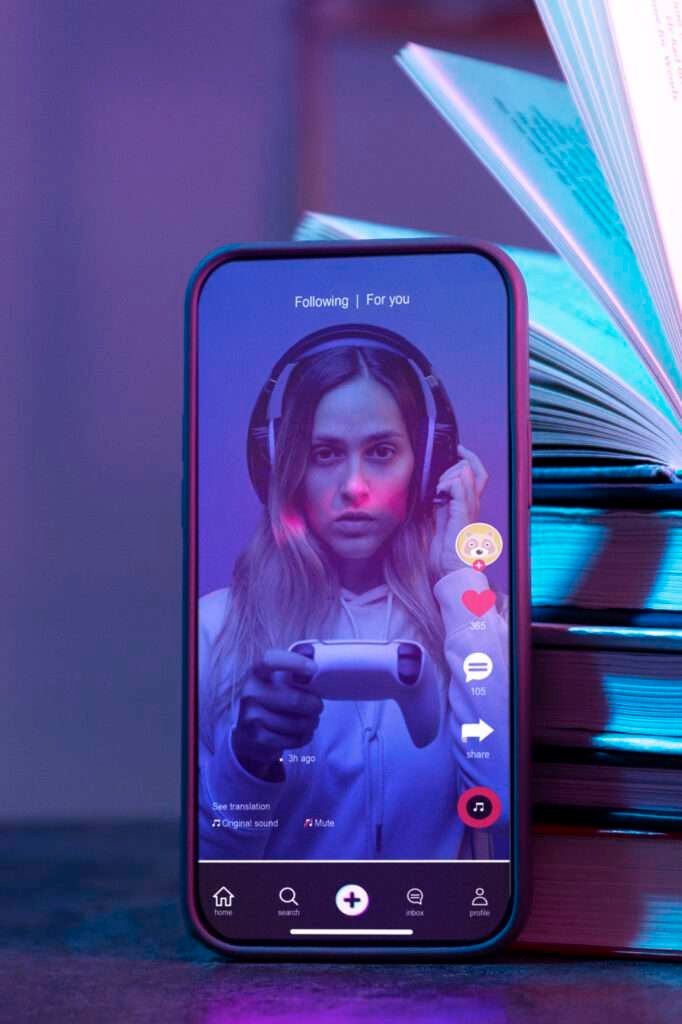
Why It’s Similar: TikTok has taken the world by storm with its short-form video content, similar to Snapchat’s focus on brief, engaging media. The app’s vast library of effects, filters, and music make it a playful and creative platform.
Unique Features:
For You Page (FYP): An algorithm-driven feed that showcases content tailored to your interests.
Duets and Stitches: Collaborate with other users’ videos to create unique content.
User Experience: TikTok’s interface is designed for easy content discovery, with an endless scroll of entertaining videos. The editing tools are intuitive, allowing users to create professional-looking videos without extensive technical skills. The community-driven nature of TikTok fosters a sense of connection and creativity.
Security and Privacy: TikTok has implemented several privacy controls, such as private accounts, restricted comments, and screen time management. Additionally, TikTok provides a detailed privacy policy and options for parents to manage their children’s use of the app.
Future Trends: Expect TikTok to continue expanding its creative tools, integrating more AI-driven content suggestions, and potentially adding new monetization options for creators.
Facebook Messenger

Why It’s Similar: Facebook Messenger incorporates several Snapchat-like features, such as ephemeral stories, a wide range of filters, and instant messaging with friends.
Unique Features:
Group Video Chats: Host video chats with multiple friends simultaneously.
Cross-App Messaging: Communicate with Instagram friends without switching apps.
Payments: Send and receive money directly through the app.
User Experience: Messenger offers a comprehensive communication suite within the Facebook ecosystem, making it easy to stay connected with friends and family. The integration with Facebook’s social features allows for seamless sharing of content and updates.
Security and Privacy: Messenger provides options for secret conversations with end-to-end encryption, as well as secure payment processing. Users can manage who can message them and control visibility settings for stories.
Future Trends: Facebook is likely to further integrate Messenger with its other platforms, enhance AR effects, and introduce more interactive features for group chats and events.
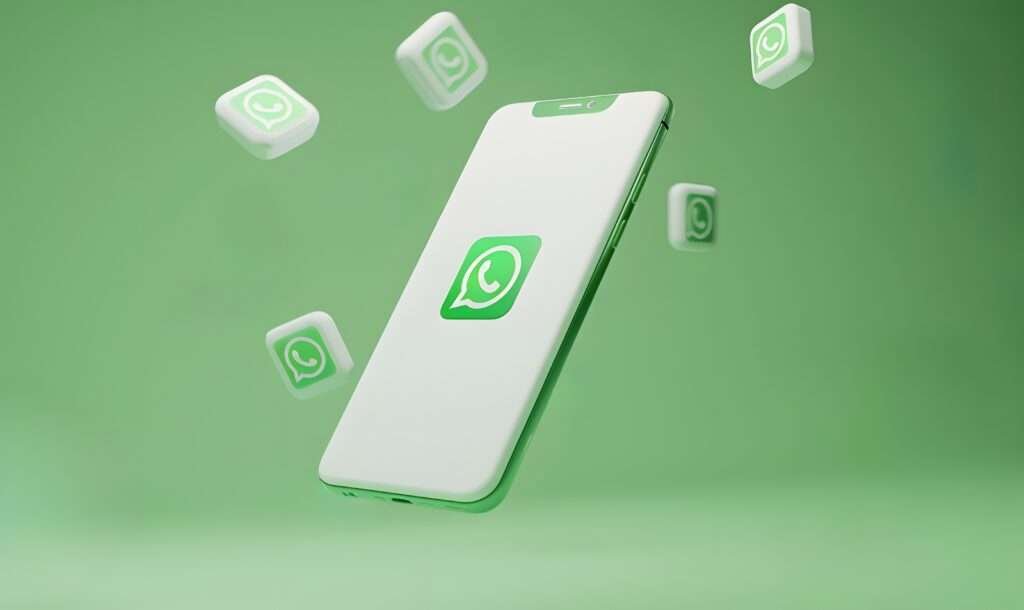
Why It’s Similar: WhatsApp’s Status feature is reminiscent of Snapchat Stories, allowing users to share photos, videos, and text updates that disappear after 24 hours.
Unique Features:
End-to-End Encryption: Ensures your messages and calls are secure.
Voice and Video Calls: Make high-quality calls to friends and family worldwide.
Document Sharing: Share documents up to 100 MB with ease.
User Experience: WhatsApp offers a straightforward, ad-free messaging experience with a focus on simplicity and reliability. The app’s wide adoption makes it a preferred choice for international communication due to its low data usage and robust calling features.
Security and Privacy: End-to-end encryption is a cornerstone of WhatsApp, ensuring that only the sender and recipient can read messages. Users can also manage who sees their status updates and configure privacy settings for profile pictures and last seen status.
Future Trends: WhatsApp is expected to continue enhancing its business features, offering more tools for customer service and e-commerce, as well as improving its multi-device support.
Discord
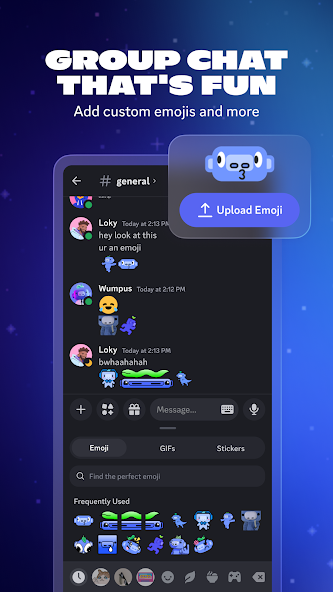
Why It’s Similar: While primarily known as a communication app for gamers, Discord offers features like voice, video, and text chat that can rival Snapchat’s messaging capabilities.
Unique Features:
Servers and Channels: Organize conversations into specific topics and interests.
Screen Sharing: Share your screen with friends during chats.
Custom Emojis: Create and use unique emojis in chats.
User Experience: Discord provides a robust platform for community building, allowing users to create and join servers based on interests. The ability to switch between text, voice, and video chats seamlessly makes it a versatile tool for both casual and professional use.
Security and Privacy: Discord offers various privacy settings, including the ability to restrict direct messages, control server visibility, and manage who can add you as a friend. Two-factor authentication adds an extra layer of security.
Future Trends: Discord is likely to expand its non-gaming communities, introduce more monetization options for creators, and enhance its integration with other platforms and tools.
Marco Polo
Why It’s Similar: Marco Polo blends the instant video messaging aspect of Snapchat with the convenience of text messaging, allowing for asynchronous communication.
Unique Features:
Video Polos: Send and receive video messages at your convenience.
Groups: Chat with multiple friends in a single thread.
No Time Limits: Watch and respond to videos on your schedule.
User Experience: Marco Polo’s user interface is designed for ease of use, making it simple to send video messages with a single tap. The app’s focus on video communication adds a personal touch to conversations, which is appreciated by users looking to maintain connections with loved ones.
Security and Privacy: Marco Polo emphasizes user privacy with secure servers and encryption for video messages. The app also provides options to block or report users, ensuring a safe environment for communication.
Future Trends: Marco Polo may introduce more interactive features, such as live video chats, enhanced video editing tools, and integration with other social media platforms.
Signal
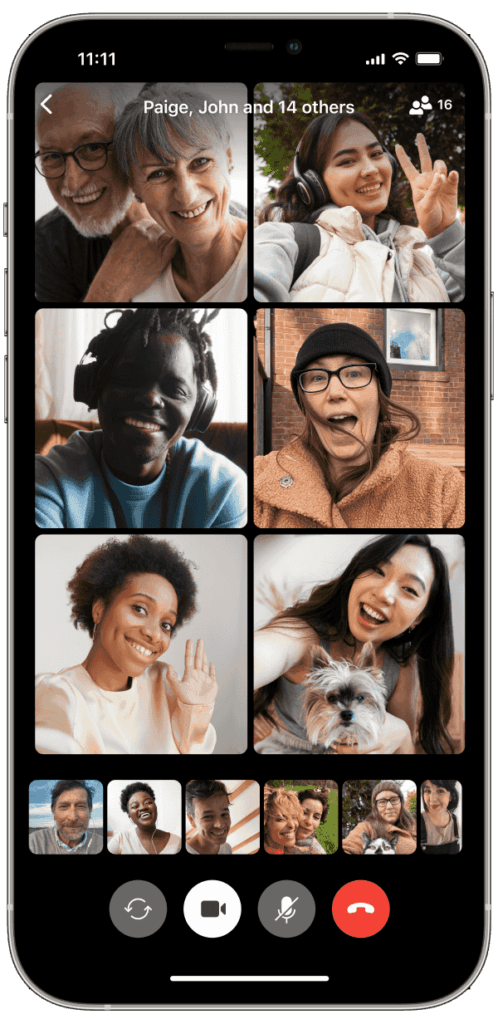
Why It’s Similar: Signal offers secure, private messaging with features that rival Snapchat’s text and media sharing capabilities.
Unique Features:
End-to-End Encryption: Protects all communications from third-party access.
Disappearing Messages: Set messages to disappear after a specified time.
Voice and Video Calls: High-quality calls with strong privacy protections.
User Experience: Signal is known for its straightforward interface and commitment to privacy. The app is favored by users who prioritize security and simplicity in their communication tools.
Security and Privacy: Signal’s end-to-end encryption is one of the most robust in the industry, ensuring that all messages, calls, and media are secure. The app also allows users to verify the identity of their contacts through unique safety numbers.
Future Trends: Signal is expected to continue enhancing its privacy features, potentially introducing more advanced security measures and expanding its user base through increased awareness of privacy issues.
Telegram

Why It’s Similar: Telegram’s focus on speed and security, along with features like secret chats and self-destructing messages, make it a viable alternative to Snapchat.
Unique Features:
Channels: Broadcast messages to large audiences.
Bots: Automate tasks and interact with users through custom bots.
Cloud Storage: Access your messages and media from any device.
User Experience: Telegram’s clean and fast interface is appreciated by users who value efficiency and security. The app’s extensive customization options and support for large group chats make it a powerful tool for both personal and professional use.
Security and Privacy: Telegram offers end-to-end encryption for secret chats, along with self-destructing messages and two-step verification for enhanced security. The app also provides detailed privacy settings for controlling who can see your phone number, last seen status, and profile picture.
Future Trends: Telegram may continue to expand its bot ecosystem, introduce more features for group management, and enhance its encryption protocols.
Viber
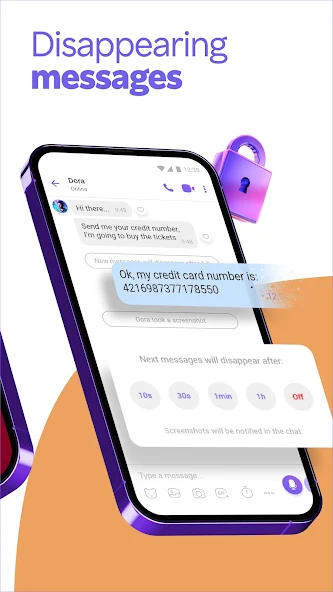
Why It’s Similar: Viber combines messaging, voice, and video calls with Snapchat-like features, including disappearing messages and stickers.
Unique Features:
Viber Out: Make low-cost calls to landlines and non-Viber users.
Communities: Join public groups with shared interests.
GIFs and Stickers: A vast library of expressive GIFs and stickers.
User Experience: Viber offers a comprehensive communication platform with a focus on high-quality calls and multimedia messaging. The app’s integration of GIFs and stickers adds a fun and expressive element to conversations.
Security and Privacy: Viber provides end-to-end encryption for all messages and calls, ensuring that user data is secure. The app also offers options to manage who can contact you and control the visibility of your profile information.
Future Trends: Viber may introduce more interactive features for communities, enhance its integration with other services, and expand its international calling options.
In-Depth Comparisons
When choosing an app similar to Snapchat, it’s essential to consider the specific features and user experiences that each platform offers. Here’s a more detailed comparison to help you make an informed decision:
Instagram vs. Snapchat:
- Stories: Both platforms offer ephemeral stories, but Instagram’s additional interactive elements like polls and shopping links give it an edge for businesses and influencers.
- Filters: Snapchat is renowned for its innovative and frequently updated filters, while Instagram provides a wide range of effects but with less frequent updates.
- User Base: Instagram’s larger and more diverse user base makes it ideal for reaching a broader audience.
TikTok vs. Snapchat:
- Content Creation: TikTok’s extensive music library and editing tools make it a superior choice for creating engaging short videos.
- Algorithm: TikTok’s algorithm is highly effective at curating content to user preferences, ensuring a more personalized experience.
- Interactivity: While Snapchat focuses on direct communication, TikTok emphasizes content discovery and interaction through comments and duets.
WhatsApp vs. Snapchat:
- Messaging: WhatsApp’s end-to-end encryption and reliable messaging features make it a top choice for secure communication.
- Status: Both apps offer disappearing status updates, but WhatsApp’s simpler interface and lack of ads appeal to users seeking a straightforward experience.
- Global Reach: WhatsApp’s widespread international use makes it ideal for staying connected with friends and family across the globe.
Case Studies and Success Stories
Instagram Success Story:
- Brand Promotion: Many brands have leveraged Instagram’s features to promote products effectively. For example, a beauty brand might use Instagram Stories to showcase new products, engage with followers through polls, and drive sales through shopping links.
TikTok Success Story:
- Viral Trends: TikTok has launched numerous viral trends that have propelled ordinary users to fame. A user might create a dance video that catches on, leading to millions of views and widespread recognition.
Discord Success Story:
- Community Building: Discord has enabled countless communities to thrive, from gaming clans to study groups. A tech enthusiast might create a server to share knowledge and host discussions, fostering a vibrant online community.
Future Trends in Social Media and Messaging Apps
The future of social media and messaging apps is poised to bring even more innovation and connectivity. Here are some trends to watch for:
Augmented Reality (AR):
- AR is expected to play a significant role in enhancing user experiences. Apps may introduce more sophisticated AR filters, virtual try-on features for shopping, and interactive AR games.
Artificial Intelligence (AI):
- AI-driven content recommendations, chatbots, and personalized experiences will continue to evolve, making apps more intuitive and engaging.
Monetization and E-commerce:
- Social media platforms are likely to integrate more e-commerce features, allowing users to shop directly within the app. This could include seamless payment options, product tagging, and virtual storefronts.
Enhanced Security:
- As privacy concerns grow, apps will invest more in robust security measures, such as advanced encryption, biometric authentication, and improved user control over data.
Cross-Platform Integration:
- Greater integration between different social media and messaging apps will provide a more unified experience. Users might be able to interact with friends across multiple platforms without switching apps.
Conclusion
Find Your Next Favorite Social App Alternatives to Snapchat as Snapchat has undoubtedly revolutionized the way we share and communicate with its unique features and playful approach to social media. However, the landscape is rich with alternatives that offer similar functionalities, each with their own unique twists. Whether you’re seeking enhanced privacy, creative tools, or new ways to connect with friends and family, these apps provide a variety of options to explore. Embrace the diversity of social media and find the platform that best suits your needs and preferences. Happy sharing!
Frequently Asked Questions (FAQ)
What are some top apps similar to Snapchat?
Several apps offer similar features to Snapchat. Some of the top alternatives include Instagram, TikTok, Facebook Messenger, WhatsApp, Discord, Marco Polo, Houseparty, Signal, Telegram, and Viber. Each of these apps has its own unique features and user experiences that can provide a fresh take on social sharing.
Are these Snapchat alternatives free to use?
Yes, the majority of the Snapchat alternatives mentioned, such as Instagram, TikTok, Facebook Messenger, WhatsApp, and others, are free to download and use. However, some apps may offer in-app purchases or premium features that require payment.
How do Instagram Stories compare to Snapchat Stories?
Instagram Stories and Snapchat Stories both allow users to share photos and videos that disappear after 24 hours. Instagram Stories, however, offer additional interactive elements like polls, Q&A stickers, and direct shopping links. Instagram’s integration with its larger social network also makes it easier to reach a broader audience.
What makes TikTok different from Snapchat?
While both TikTok and Snapchat focus on short-form video content, TikTok emphasizes viral trends and content discovery through its For You Page. TikTok’s extensive library of music, effects, and editing tools also allows for more creative expression. In contrast, Snapchat focuses more on direct communication with friends through snaps and chats.
Is WhatsApp as secure as Snapchat for messaging?
WhatsApp is highly secure, offering end-to-end encryption for all messages and calls, which ensures that only the sender and recipient can read the messages. Snapchat also offers security features, but WhatsApp’s encryption is often regarded as more robust, making it a preferred choice for users prioritizing privacy.
How do I keep my information private on these apps?
Each app offers privacy settings to help you control your information. You can make your account private, restrict who can see your stories or posts, block or report unwanted interactions, and use features like two-factor authentication. It’s also important to regularly review and update your privacy settings to ensure they align with your preferences.
Are these apps safe for kids and teens?
Most of these apps offer safety features and parental controls to help protect younger users. For example, TikTok has a Family Pairing feature that allows parents to manage their child’s app usage. WhatsApp and Messenger also provide privacy settings to control who can contact young users. It’s always a good idea for parents to stay informed about the apps their children are using and discuss online safety regularly.
What future trends can we expect from social media and messaging apps?
The future of social media and messaging apps will likely see more advanced features like augmented reality (AR), artificial intelligence (AI) for personalized content, enhanced security measures, and greater integration across platforms. These advancements aim to create more engaging, secure, and seamless user experiences.
